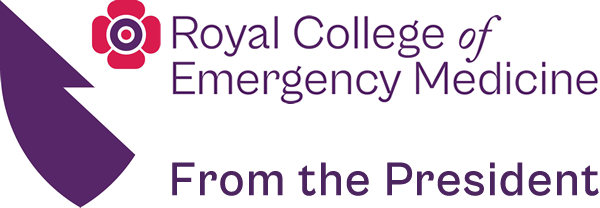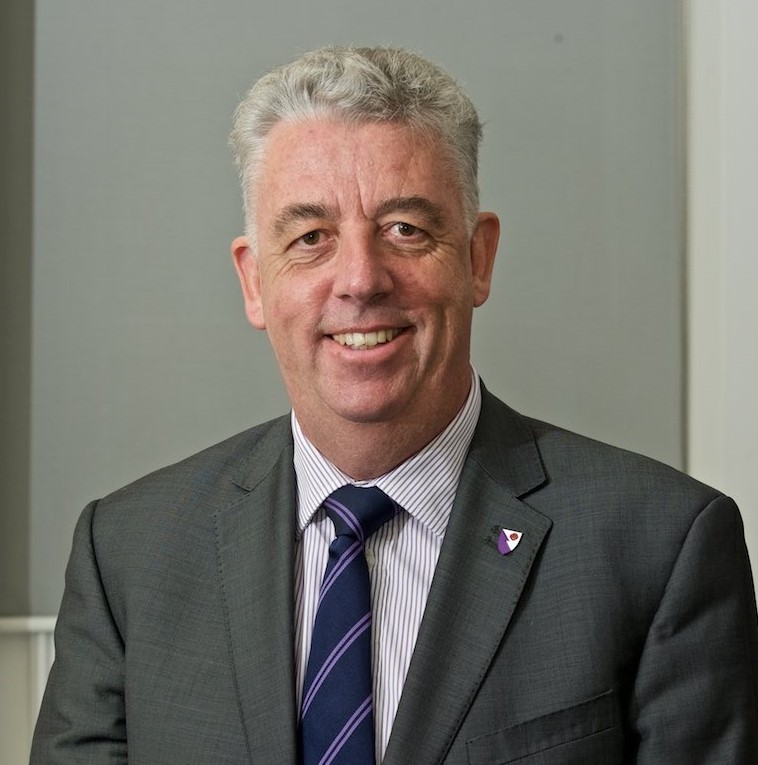‘Time and tide waits for no man’ and so although my first newsletter as President has yet to be published I am tasked with putting pen to paper again, to ensure early receipt at the printers to accompany the Conference supplement. As I write, I am sat a short distance from my boat (dinghy) on the Riviera (Devon). I trust you too have had the opportunity for some rest and relaxation this summer.
By the time you read this, the Autumn Scientific Meeting will have seen many of us gather for learning and networking; as well as engaging in the witty banter, penetrating analysis and exchanges of ironic anecdote that are the hallmarks of the well rounded EM doctor.
I will have completed several firsts, including awarding the William Rutherford Prize and giving a ‘Keynote address’ – I regret to inform you that the organisers have declined to offer refunds to those polite enough to have listened.
What I can announce however is the appointment of Katherine Henderson as College Registrar and Francis Morris as CPD Director. The College is immensely grateful for the time each has committed to these unpaid roles and from a personal perspective, Katherine at least, can only do better than the last bloke!
Moving from speculation to information I hope that you will all have had the opportunity to read the response of the College to the Keogh Review Evidence Base. I am obliged to the hundreds of individual contributions that were then collated to produce our final submission. I and the Vice-Presidents have attended several further meetings to discuss ‘models of care’ and ‘delivery of care’ – our contributions have been grounded in the responses, suggestions and experiences of Fellows and Members.
Further to my remarks last time, and by way of emphasis of the key issues of recruitment and retention, I am meeting with the BMA Trainees Committee and Consultant Committee negotiators to outline our thoughts on how the contract in England can be amended to promote both interest and sustainability in an EM career. Clearly these discussions will relate to the contract in England – as this is currently the only one to which both parties have agreed to consider negotiating. Nevertheless were we to persuade the BMA of our case, and they in turn able to persuade the Government, this would be a powerful exemplar to the governments of Wales, Northern Ireland, Republic of Ireland and Scotland.
The other key driver for the College currently, is the need to increase the number of training posts – particularly the first few years. We need to avoid being ‘hostages to fortune’ with respect to the proportion of trainees who select to enter Higher Specialist Training. This will require us to increase funding and numbers available for these posts. Improving recruitment rates into higher specialist training will require both short and long term recognition of the workload, intensity and proportion of anti-social hours worked.
Our current strategy to the EM challenges we all currently face can be summarised as 1) promoting, short term, training incentives 2) building medium term capacity and 3) ensuring long term sustainability.
These ‘demands’ are not the stuff of dreams in contrast to the current nightmare of inadequate and incomplete rotas. We know that last year the average locum spend per ED was in excess of £600,000. There is also good evidence that senior EM doctors use resources more efficiently and make better decisions, thereby reducing waste and increasing productivity. We need to persuade governments to spend more wisely, more strategically and to do so now!
Finally I would wish to urge us all to avoid adopting ‘the victim role’. To do so will further undermine our morale at a time when our skills and aptitudes are more necessary than ever. ED doctors have embraced the finest ideals of a service predicated on altruism. We hold the moral high ground. In these times of both austerity and evidence based practice it is for others to prove their value, ours is not in question.
Dr Cliff Mann
President
The College of Emergency Medicine
@RCEMPresident


